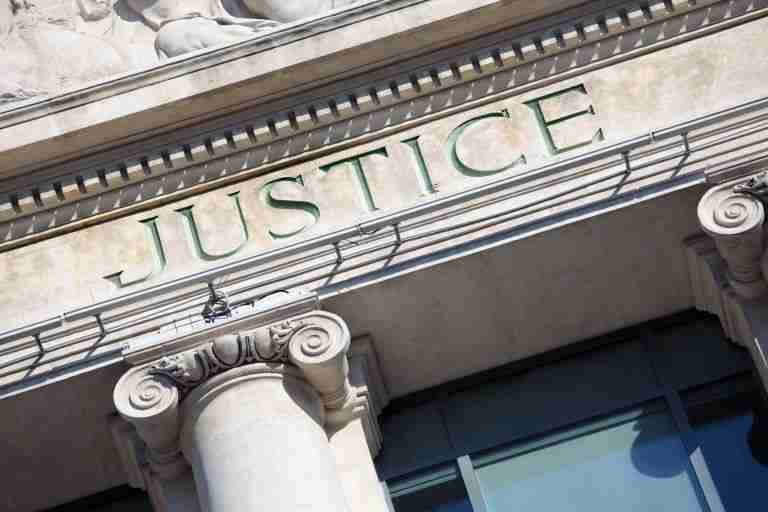Jury trials hold a pivotal role in the U.S. legal system, embodying the democratic principle that legal decisions should reflect the community’s collective judgment. This system, where peers weigh the evidence and determine the outcome of cases, ensures that justice is not only administered by legal professionals but also resonates with societal values and norms. At Bronx Injury Lawyers, P.C., we deeply value the jury system as a cornerstone of American justice. Our commitment to this process stems from our belief in its power to deliver fair and balanced resolutions, upholding the ideals of transparency and community participation in the legal realm.
Role of Juries in the Legal System
Historical Origins of Jury Trials
The historical roots of jury trials in the U.S. trace back to English common law, a foundational element of the American legal system. Adopted and adapted by the United States, this system integrated the principle of communal judgment in legal proceedings, ensuring that justice resonates with democratic values and the collective conscience of society.
Jury Selection Process
The jury selection process in the U.S. involves a critical step known as voir dire, where potential jurors are questioned to ensure impartiality and suitability for a specific case. Eligibility criteria include being a U.S. citizen, having proficient English understanding, and possessing sound judgment and fairness. This process is fundamental in assembling a jury that delivers unbiased and just verdicts.
The Role of Jurors in Trials
Jurors play a crucial role in trials, impartially evaluating evidence and testimonies to determine verdicts. Their duties extend beyond mere observation; jurors actively discern facts, apply laws, and deliberate outcomes. The power vested in this role is significant, as their decisions directly impact the course of justice, underscoring the importance of their contribution to the legal process.
Types of Jury Trials
Criminal and civil jury trials represent two paths in the U.S. legal system. In criminal trials, jurors assess whether the defendant has breached the law, while in civil trials, they focus on disputes between individuals or entities, often involving compensation. Bronx Injury Lawyers, P.C. has extensive experience navigating both realms, from defending clients in criminal proceedings to representing plaintiffs in civil litigation, showcasing our versatile expertise across the spectrum of jury trials.
Jury Size and Unanimity Requirements
Jury size in the U.S. varies, particularly between state and federal courts. Federal cases typically involve 12 jurors, whereas state courts can have smaller juries. The requirement for unanimity in verdicts, essential in federal cases and many state trials, ensures that decisions represent collective agreement, reflecting a profound commitment to consensus in the pursuit of justice. This unanimity underscores the gravity and fairness of the jury’s role in legal determinations.
The Psychology of Jury Deliberations
The psychology of jury deliberations is complex, influenced by group dynamics and individual psychology. Recent studies and expert opinions suggest that factors like social influence, personal biases, and the persuasive abilities of fellow jurors shape jurors’ decision-making. These elements intertwine, creating a nuanced interplay that ultimately steers the collective verdict, highlighting the psychological intricacies in the pursuit of justice.
Notable Jury Trials in U.S. History
Landmark jury trials in U.S. history, like the Scopes “Monkey” Trial and the O.J. Simpson case, have left indelible marks on the legal and societal landscape. Pivotal in their eras, these trials sparked nationwide discussions on issues ranging from educational freedoms to racial dynamics in the justice system, profoundly influencing legal precedents and public perception of the judicial process.
Jury Trials in Popular Culture
Jury trials in popular culture, as depicted in movies, TV shows, and books, significantly shape public perception of the legal process. These dramatizations often emphasize high-stakes drama and moral dilemmas, impacting how society views the complexities and responsibilities of jury duty. While sometimes sensationalized, these portrayals contribute to a broader understanding and fascination with the judicial system.
Jury Trials in the Digital Age
In the digital age, technology and social media present new challenges for jury trials, impacting their integrity and fairness. The instant availability of information can influence jurors’ impartiality, necessitating stringent measures to safeguard the sanctity of the trial process. Navigating these challenges is crucial for ensuring justice in an era of ubiquitous digital connectivity.
Future of Jury Trials
The future of jury trials in the U.S. may see significant evolution driven by legal reforms and societal changes. Anticipated advancements could include increased virtual proceedings, greater juror diversity, and enhanced methods to ensure impartiality. These developments aim to uphold the efficacy and fairness of the jury system in a rapidly changing societal landscape.
Conclusion
Jury trials are fundamental in upholding justice, embodying the democratic principle of judgment by peers. We remain steadfast in our commitment to ensuring fair jury trials for our clients, recognizing these trials as a vital component of the judicial system, essential for delivering unbiased and just outcomes in legal proceedings.

